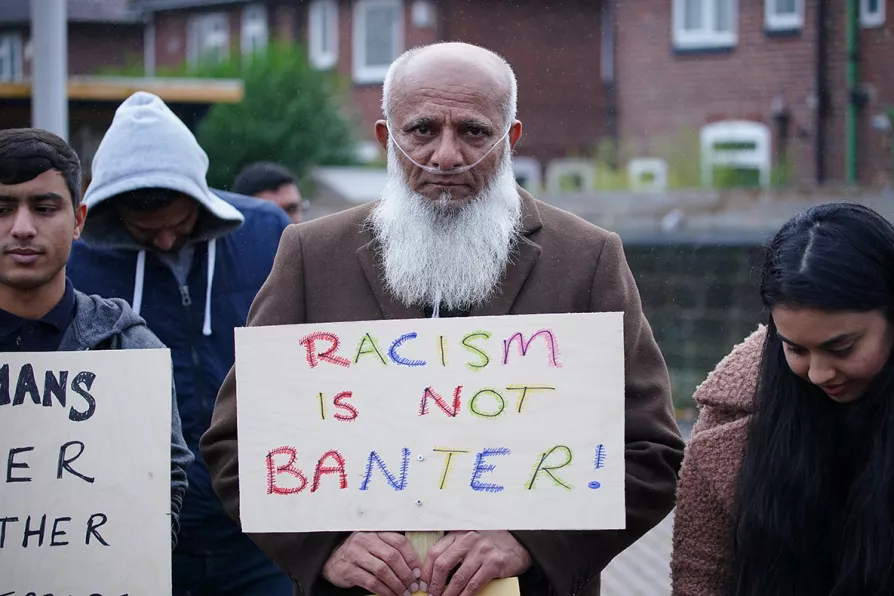Rafiq's testimony shows why we must all call out racism wherever we see it
Alongside the incomprehensible abuse described by the ex-Yorkshire cricketer this week was an equally sickening pattern of supposed allies turning a blind eye. A commitment to solidarity and education on the issue must become even more of a duty for us all: on the streets, in the stands, at home, in the workplace, argues Morning Star sports editor BELLA KATZ

 People take part in a protest outside Yorkshire County Cricket Club's Headingley Stadium in Leeds, in support of former county player Azeem Rafiq, after he spoke out about the racism and bullying he suffered over two spells at Yorkshire
People take part in a protest outside Yorkshire County Cricket Club's Headingley Stadium in Leeds, in support of former county player Azeem Rafiq, after he spoke out about the racism and bullying he suffered over two spells at Yorkshire
I HAD a number of things on my mind to discuss this week, but they were soon overshadowed by Azeem Rafiq’s harrowing evidence to the digital, culture, media and sport committee on Tuesday morning.
The insight he gave into the sheer scale of institutional racism present, not only in the sporting industry but in Britain more broadly, is a tough pill to swallow.
You’d be naive to think that this has come out of nowhere — it is everywhere, from certain newspapers’ depictions of Raheem Sterling, to the response to the missed penalties at the Euros, to booing the knee, to trolls online.
Similar stories

As anti-immigration rhetoric gains mainstream acceptance, trade unions must unite workers across backgrounds while challenging the false narrative that blames migrants for economic hardship, argues TONY CONWAY

The playwright and artist reflects on the ways in which reviewing can nourish the creative act

In a year press disinformation, ALEX HALL picks out the best and worst











